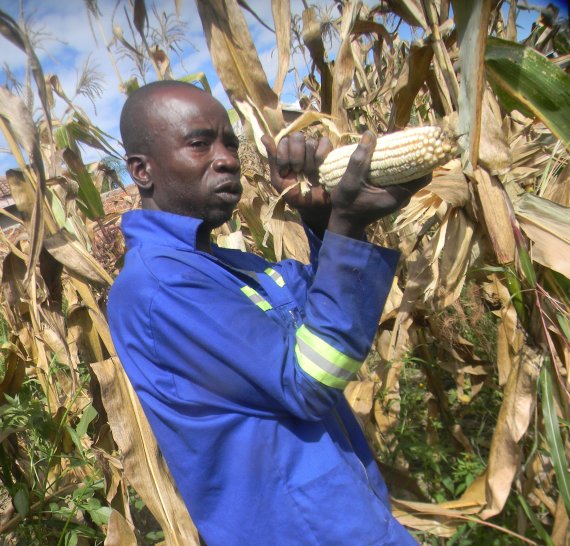Many NGOs and donors in Africa have embraced the conservation agriculture (CA) approach to farming. CA farmers plough little or not at all, leave crop remains on the land and apply crop rotation and intercropping. A popular example of CA agriculture is growing maize in combination with legumes and without any artificial fertilizer.
Hype
‘This approach has been hugely hyped up,’ says Katrien Descheemaeker, Esther Masvaya’s co-supervisor. ‘It is a form of agriculture that works well in large-scale farming systems in the US and Australia, but in small-scale farming systems in Africa there are a lot of catches.’ Crop remains, for example, cannot be left on the land without the farmer losing a source of livestock feed. And sometimes farmers are better off ploughing to combat weeds. It is fine to grow nitrogen-fixing pulses, says Descheemaeker, but they rarely produce enough nitrogen to compensate for the loss of nitrogen from maize farming. In Masvaya’s field trials in Zimbabwe she got the best results with a combination of artificial fertilizer and animal manure.
Climate
Another hype is climate-smart agriculture, where the intention is to adapt to climate change and reduce greenhouse gas emissions. This too is tricky in the African context, says Descheemaeker. ‘To get decent harvests, you need artificial fertilizer and animal manure, but they increase greenhouse gas emissions.’
It would be better if NGOs offered a combination of options
Diverse production
The problem for farmers in Zimbabwe is that they have relatively little land and work in a wide variety of climatic conditions. Descheemaeker: ‘They respond to that with a diverse production system that minimizes risks. They shouldn’t follow a rigid, set approach but cherry-pick the useful elements. So I think it would be better if NGOs offered a combination of option, with a warning for each option: this works under these conditions.’
Esther Masvaya promoted May 27th with Ken Giller, Professor Plant Production Systems.

 Photo: Shutterstock
Photo: Shutterstock